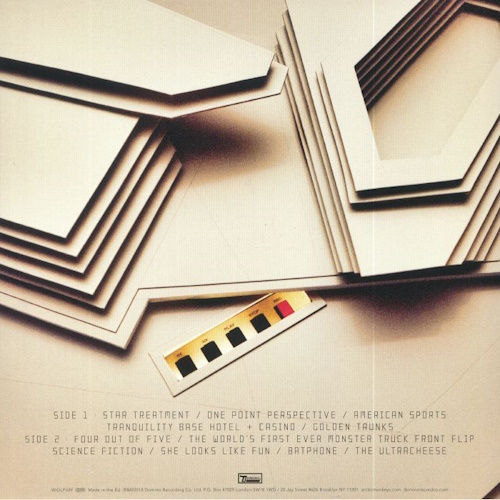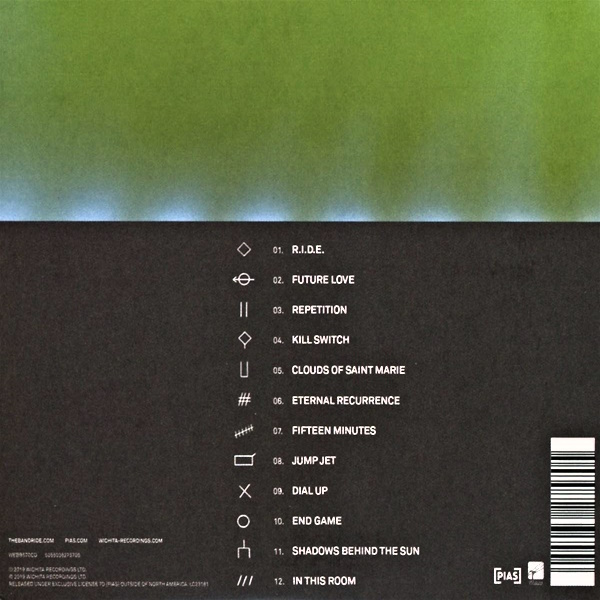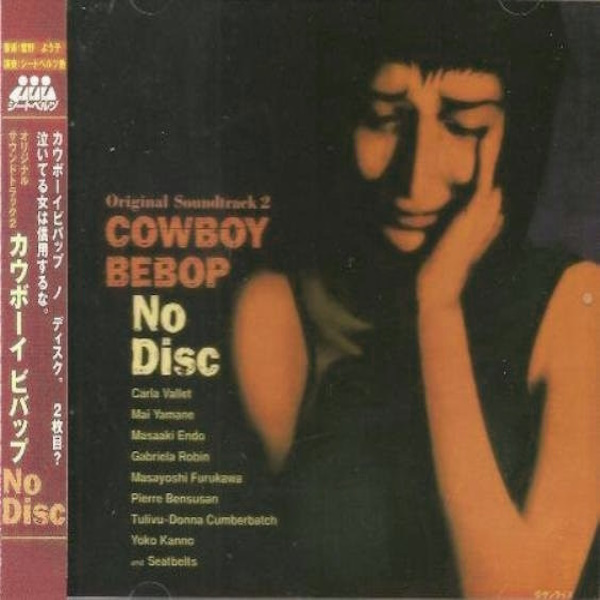
Shakedown 2005. I’m real young. I’m a recluse. I’m a wreck. My parents split five years earlier; Mom remarried and moved to a Posh Island Community in Coastal Georgia; Dad remarried but stayed in Atlanta, my hometown. I was given the great honor of choosing which parent’s heart to rip out of their chest and, naturally, I picked Dad because Mom let me do whatever I wanted with no supervision. Years prior, in September 2001, Cowboy Bebop aired on Adult Swim’s programming block, three years after its Japanese airing on TV Tokyo; I watched the whole series in the dim light of way-past-bedtime with one hand on the TV-remote in case the parents wanted to check on me. Two years later, in October 2003, Final Fantasy XI, a massive multiplayer online game, was released on PC and I was on the bleeding edge, consuming it all in real-time; ‘island time,’ as the very-elderly-beach-bum-elite of the Posh Island Community would call it.
Blessed with a rich step-dad, a Dell Dimension 4550, and nowhere to go but down; I had all the bells and whistles a 2000s-kid could possibly want: computer games, big TVs, every modern game console, friends in fantasy worlds, an office to lose myself in, and two girlfriends who didn’t know about each other.
I also had three LiveJournal accounts, two of which were for my roleplaying-character-profiles. None of them exist anymore (I checked). I enjoyed writing; it’s the only artistic thing I’m remotely good at. So, of course, I spent a lot of time in Yahoo! Messenger chatrooms typing up ‘paragraph-style-roleplaying’ with random strangers online.
I was on Adderall (Amphetamines, pretty much ‘speed for children’) from the young age of ten, being diagnosed with Attention-deficit/hyperactivity disorder; the medication helped with the writing process. To help get me in the zone, I would listen to the Cowboy Bebop soundtrack, specifically – “No Disc,” the third soundtrack released in 1998 by Yoko Kanno’s band SEATBELTS, which was initially created specifically to compose the music for Cowboy Bebop. I enjoyed the song ‘Elm.’ A track consisting of only gentle guitar ringing and a vocal melody of simple, melodious ‘la la la’s’ performed by Pierre Bensusan, French-Algerian acoustic guitarist. This song, best described as both deeply somber and beautifully transcendent, put me in a zen-like state of non-stop writing (and still does, evidenced by this article) and, of course, I would write garbage like:
Edge walks into the tavern with a mean look on his face. He swipes his long blue and red hair out of his eyes before casting a glance over to the bar. The tavern’s lantern light glints off the huge sword on his back. Edge surveyed the room for a moment before he walked to the bar and sat near the pretty girl at the far end. He signals to the bartender, who approaches quickly out of pure fear due to Edge’s coolly intimidating presence. Edge smirks at the girl then at the bartender, “one glass of milk, and another for the lady, on me.” Edge pauses, “actually, make that strawberry milk for the lady.”
Naturally, most of these role-playing sessions would lead to private messaging and in-character textual-love-making between myself and the random stranger, who was most likely much older than I assumed; but I never asked their age, I didn’t care: we were playing characters; It was artistic; It was cool; It was cyber-sexing in abstraction. And to the best of my – rather poor – memory: this was how I learned about the nuances of sex.
Video: SEATBELTS – Elm
SEATBELTS, as Yoko Kanno’s band, is actually a collective of musicians. Yoko Kanno herself functions largely as a writer, producer, and conductor on most tracks, playing only piano and keyboard melodies on records that encompass far more than pianos and keyboards. Occasionally, she sings under the credited pseudonym of ‘Gabriela Robin.’ The collective’s name is derived from the ‘seatbelts the band members have to wear during their hardcore jam sessions.’ Their music transcends consistent labeling; jazz, world music, top-10-pops, metal, rock, lounge, and bluegrass; sometimes within the course of a single song. Often, it feels like a completely different band from track to track, and at times it might as well be due to the sheer number of musicians involved with creating the music. Yoko Kanno’s SEATBELTS are the very definition of eclectic.
 *Yoko Kanno, her face very close to a piano.
*Yoko Kanno, her face very close to a piano.
Anyway, the girlfriends.
The two girlfriends. One was an artist named after a Bob Dylan song; she lived in my old hometown of Atlanta. We liked all the same stuff. She was sad when I moved; and I was too. The other was a girl named after a flower who lived in the Posh Island Community; she was more akin to a venus flytrap than a rose, and I was the fly. I would travel back and forth from Mom and Dad’s house every other month, visiting my Dad for a weekend or so before returning to Mom’s to live – what I felt was – My Real Life. It was multiversal; a quick one-hour plane ride to the other dimension. When I visited Dad, I would focus every ounce of my being on being around the Artist. We would go to a gigantic store called Media Play – which sold anime, manga, DVDs, games, CDs, everything – and just walk around shyly holding hands, barely talking to each other, like young teenagers do. Sometimes, if her parents were present, we would go to her house and watch TV in her roomy basement; usually anime, often Cowboy Bebop. We were inseparable and I was stupid.
Flower Girl was just there, on the Island. She was interested in me, largely because we both liked those terrible early-2000s hardcore bands – Underoath or Alexisonfire or Whatever – and when I would get bored of playing Final Fantasy XI, I would occasionally venture out to see her. My Mom gave me far too much freedom. I would go to her family’s apartment, alone, with no adults around except her incapacitated great aunt who had a gaping hole in her throat; “yes mom, an adult is here with us.” The house smelled of quintessence – cigarette smoke quintessence – which I didn’t recognize until many years later after I started smoking myself. I barely liked the Flower Girl, but with freedom, access to a bed, and utter boredom came fun. A lot of fun. And, of course, Teenagers Having Fun is Very Complicated, especially when you’re Seeing Other People.
I didn’t like the Flower Girl; she was just there. I was using her and hiding it from the person I really liked. I knew what I was doing was wrong; I was lying and I was stupid. So, I broke it off with the Flower Girl, and things got really weird, really fast.
Flower Girl was obsessed and upset. She called me on my Nokia cell phone late one night while I was partying in Final Fantasy XI; I was ‘puller,’ which meant I had to claim the monster and pull it back to camp for the party to kill; Cowboy Bebop was playing on Adult Swim in the background, the episode where the guy with the afro – Hakim – tries to kidnap Ein, the corgi data-dog, while ‘Want It All Back,’ an infectious pop song with bright horns and a ripping guitar melody plays loudly during the exciting mid-episode chase scene.
Video: Cowboy Bebop EP2 “Stray Dog Strut,” scene in which Spike chases Hakim while “Want It All Back” plays.
Then it happens.
Mid-pull, the Flower Girl tells me that she’s pregnant. She says that I should come to her house ‘right now so we can talk about this.’ I stop what I’m doing; the monster never makes it back to camp and attacks my character to death while I stare mindlessly at absolutely nothing.
I turn off the computer manually with the button.
I am fourteen years old.
There was a gaping pit in my belly and a million questions running through my head. What would my parents think? How am I going to take care of this kid? Will I have enough time to keep writing and playing computer games? Is my life ruined? Should I end it all? All I could think about was myself. The Nokia started beeping softly; someone was trying to come through on the other line. It was the Artist; the other girlfriend; we talked every night before bed. I didn’t know what to do. My mind was fried. The Flower Girl kept repeating ‘hello?’ while I was staring at a blank monitor in catatonia.
Quickly and out of pure selfishness, I bluff and tell Flower Girl, ‘I don’t believe you,’ and then hang up on her. Then I turn off my cell phone and lay down on the floor with my face in the carpet. I can hear Cowboy Bebop’s ending theme playing in the background, ‘The Real Folk Blues.’
I deserved this.
I eventually fell asleep and woke up the next day in something resembling a sober hangover. I turned my phone on and text messages started flowing in from both the Flower Girl and the Artist. I ignored them and turned my phone off again. I returned to my office, retrieved my Cowboy Bebop DVD box set, and began watching the series from the beginning while I logged into Yahoo! Messenger and started roleplaying as some new character or other, escaping into virtual insanity.
Cowboy Bebop became my mood and my life. I lived as a complete recluse, hiding from the world; constantly in a state of paranoia, believing that any call or SMS would bring terrible, life-shattering news. I feared that someone, particularly the Flower Girl’s parents, would contact mine about the pregnancy. I tiptoed around the house like a shadow in the corner of an eye, avoiding everyone and everything. I abused Adderall and rarely ate, passing out briefly one time as I swapped out a Cowboy Bebop DVD when Mom was in the room, she was concerned but I talked my way out of it – “I just didn’t eat much today, Mom, I’m fine.”
I convinced myself that if I simply ignored the problem, it would go away. If I wasn’t present to witness it, like a tree falling in the forest, it wouldn’t happen; the Flower Girl’s parents wouldn’t contact my family, and no one would show up at my house with any parental announcements whatsoever. My only comfort was speed, writing, computer games, and SEATBELTS; often all happening at once. It was Teenage Quantum Physics and Vices On Repeat.
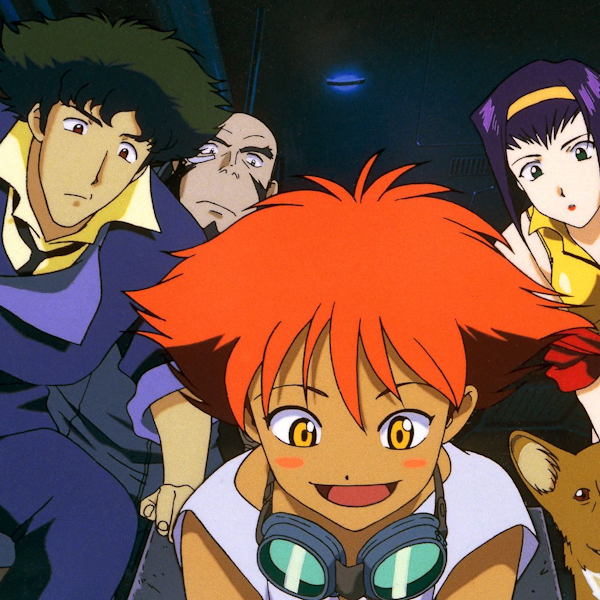 *the cast of Cowboy Bebop
*the cast of Cowboy Bebop
In another time, the defining moment of someone’s childhood might have been parents dying in a war, working in a coal mine, or facing some other cosmic horror; mine was pathetic and modern, ‘I got a girl pregnant.’
Or so I thought.
Months of ignoring the problem, attending school as if nothing was wrong – luckily, the Flower Girl went to a different school – and going through all the motions of being a privileged fourteen-year-old kid; eventually, I turned my phone back on and went through all the missed messages. That’s when I saw it, the final message from the Flower Girl.
“I’m sorry, I made it all up. I’m not pregnant.”
I stared at the little Nokia pixels that made up the letters for what must have been thirty-minutes. Speechless. Textless. All the mental anguish, the paranoia, the sneaking around – it was all pointless? She was never pregnant? She made it all up? A great weight had been lifted, but I was never truly the same. During this period of my life, I became reclusive, cynical, gaunt after having lost thirty pounds, and simply wrote and listened to music all day and night on child-approved-speed. And it was all because I turned my phone off and ignored the problem?
I deserved this.
About a week after the initial catatonia, I had been communicating with the Artist through AOL Instant Messenger weekly. I told her my phone was broken, and she believed it. However, after I resumed using my phone and learned ‘the truth,’ I confessed to her about what had happened. She was shattered but said, ‘I forgive you, and we’ll work through it; just promise me I’m the only one now.’ And I promised. I learned my lesson the hard way. It was over now.
Video: SEATBELTS – Cats on Mars
Months later, while listening to ‘Cats on Mars,’ a keyboard-driven piece of bubblegum pop sung in Japanese by ‘Gabriela Robin,’ I received a random message on AOL Instant Messenger from an unrecognizable username. The instant-message was simply a link to an image hosted on Imageshack (a popular image hosting site during the early 2000s, similar to Imgur now). I clicked the link, and it was a picture of a baby with the caption ‘lol.’
The fear, the pit, the paranoia; it all returned in an instant with one instant-message. My mind, fucked. Incensed, I called the Flower Girl, and she plainly told me that she had actually been pregnant but had ‘given the kid up for adoption,’ then scolded me for ignoring her for so long. I asked her why she had told me that she made up the pregnancy, and she said ‘it was easier that way.’ Finally I asked her, ‘then who sent the picture?’ and she said ‘oh, my friend, she got drunk and sent it, I told her not to.’
This wasn’t the truth either. Months later, she told me – again – that she was never pregnant, apologizing and telling me that ‘both my friend and I were drinking and thought it would be funny to send you a random baby picture we found online.’ She made everything up because ‘I wanted to get back at you for leaving me.’
Mindfucked and totally mental; I didn’t know what to believe. My teenage years, from fourteen to sixteen, were filled with this anxious dread, this paranoia of not knowing. Was she ever pregnant? If so, did she actually give the baby up for adoption? Did she really make it up, or did she say that to make me feel better? Was it all really a big prank to get back at me?
She got back at me, alright.
Much later, in my twenties, I spoke with Flower Girl again, and she strongly insisted that she made up the whole thing because she was angry that I dumped her. She claimed that the instances where it circled back, the ‘here’s a picture of your baby, lol,’ were just her ‘being cruel’ with her friends while on a bender – but was this just another lie?
For so long, I felt like Spike Spiegel falling from the church’s stained glass window after his serendipitous battle with Vicious – “You should see yourself. Do you have any idea what you look like right at this moment?” And instead of looking like a ravenous beast, I looked like a scared, lost child. The gorgeous ‘Green Bird,’ a piano driven hymn that sounds like cherubs taunting from on high, plays as I fall endlessly, wishing the ground would hurry up and catch up with me.
Video: Scene from Cowboy Bebop in which Spike and Vicious duel; the song “Green Bird” by SEATBELTS plays as Spike falls out of a stained-glass window.
I looked it up. I checked the family trees. I checked the local birth records. There’s nothing there. It never happened.
I laugh about it now but, at the time, it was terrible.
But it wasn’t all terrible. Surely, I would not be the same person I am now without the Flower Girl and the SEATBELTS. Yoko Kanno was there for me; comforting me in a darkness of my own making; my guide and my only friend. The eclecticism of the music found throughout Cowboy Bebop, a show that, without the SEATBELTS, would have been far worse than it lucked-out to be, eventually inspired me to explore jazz and other genres of music I never would have considered otherwise.
As of writing this, I am 30-something-years-old, married to the love of my life, and have two children. I’m doing well. But I will never forget the time when Yoko Kanno and her SEATBELTS were my everything.
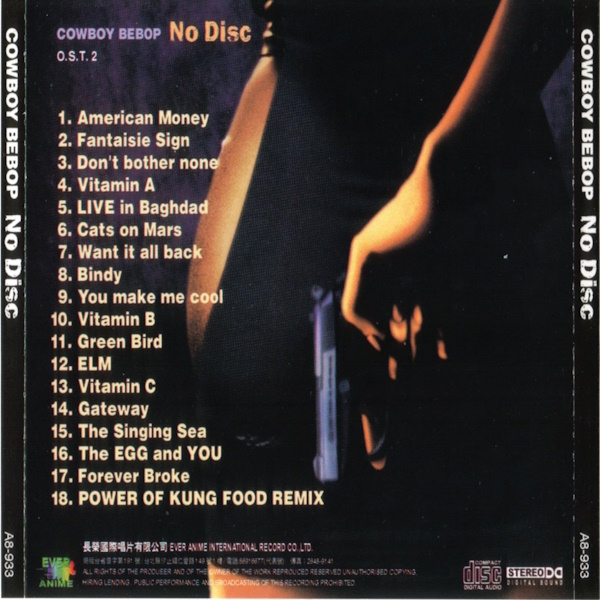
#music #autobiographical #anime #SEATBELTS



 *view from the afternoon; April 28th, 2023.
*view from the afternoon; April 28th, 2023.

 *”Forever Since Breakfast” album insert, featuring a young Robert Pollard’s scribblings
*”Forever Since Breakfast” album insert, featuring a young Robert Pollard’s scribblings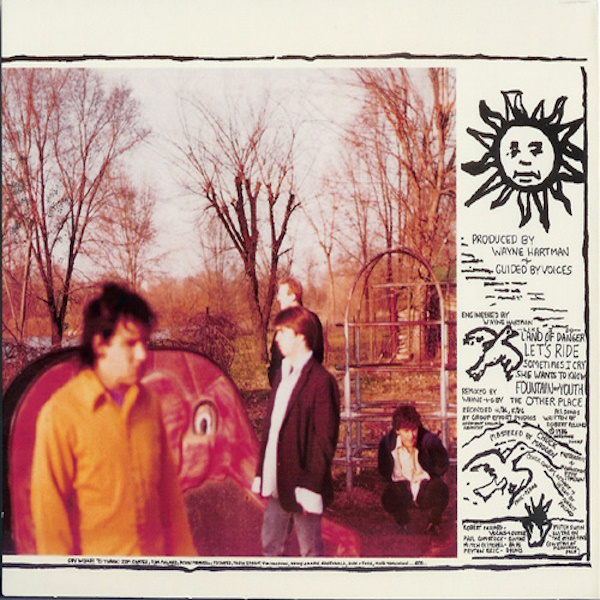

 *Yoko Kanno, her face very close to a piano.
*Yoko Kanno, her face very close to a piano. *the cast of Cowboy Bebop
*the cast of Cowboy Bebop

 *Elizabeth Fraser on 9/11/1993 issue of Melody Maker for the release of “Four-Calendar Café”
*Elizabeth Fraser on 9/11/1993 issue of Melody Maker for the release of “Four-Calendar Café”
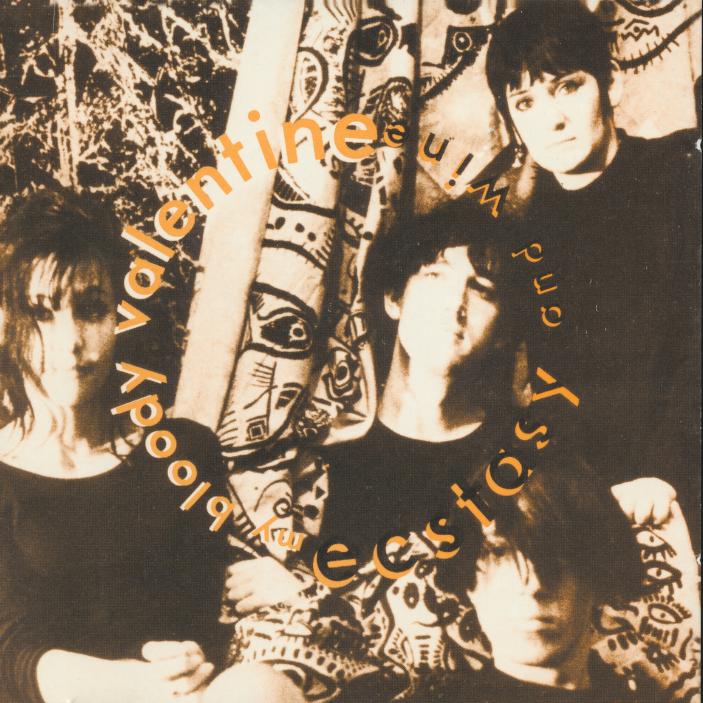
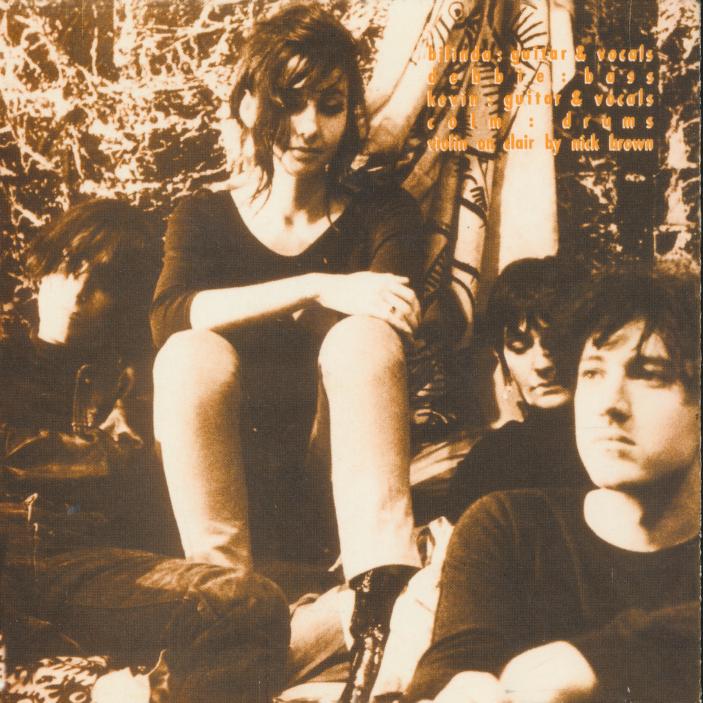 *Ecstasy and Wine insert, left to right: Colm Ó Cíosóig (drums), Bilinda Butcher (guitar/vocals), Debbie Googe (bass), and Kevin Shields (guitar/vocals)
*Ecstasy and Wine insert, left to right: Colm Ó Cíosóig (drums), Bilinda Butcher (guitar/vocals), Debbie Googe (bass), and Kevin Shields (guitar/vocals)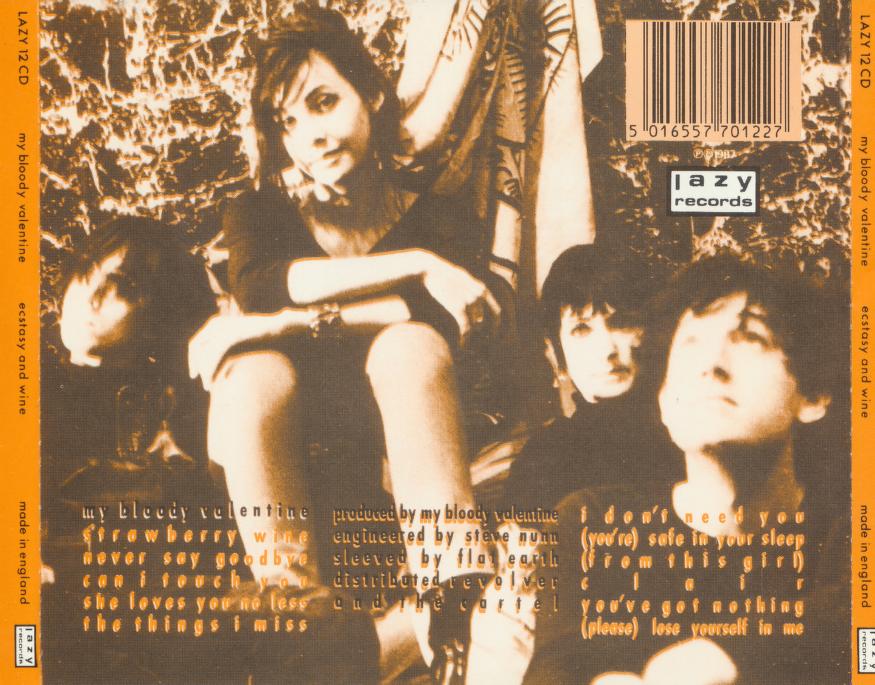
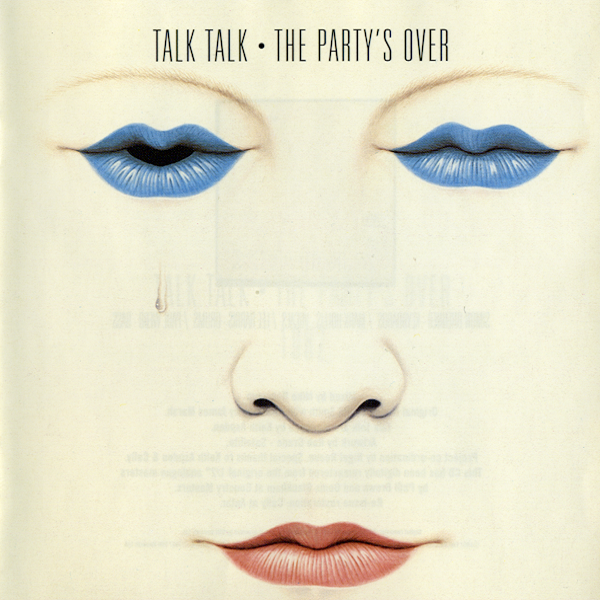
 *Talk Talk 1982; ”The Party’s Over” record insert: Simon Brenner, Lee Harris, Paul Webb, Mark Hollis (respectively)
*Talk Talk 1982; ”The Party’s Over” record insert: Simon Brenner, Lee Harris, Paul Webb, Mark Hollis (respectively)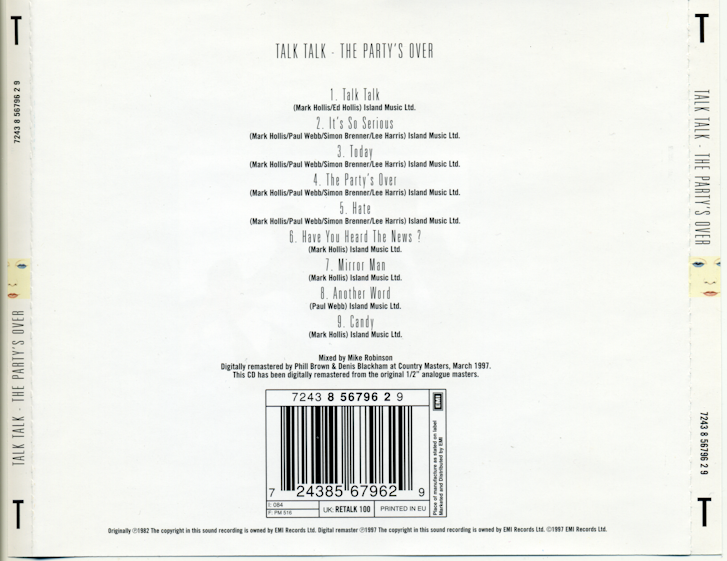
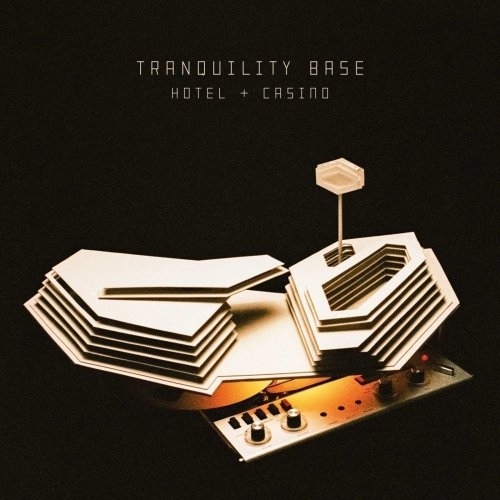
 Alex Turner, frontman and principal songwriter of Arctic Monkeys, pictured during the 2018 Maida Vale BBC sessions
Alex Turner, frontman and principal songwriter of Arctic Monkeys, pictured during the 2018 Maida Vale BBC sessions